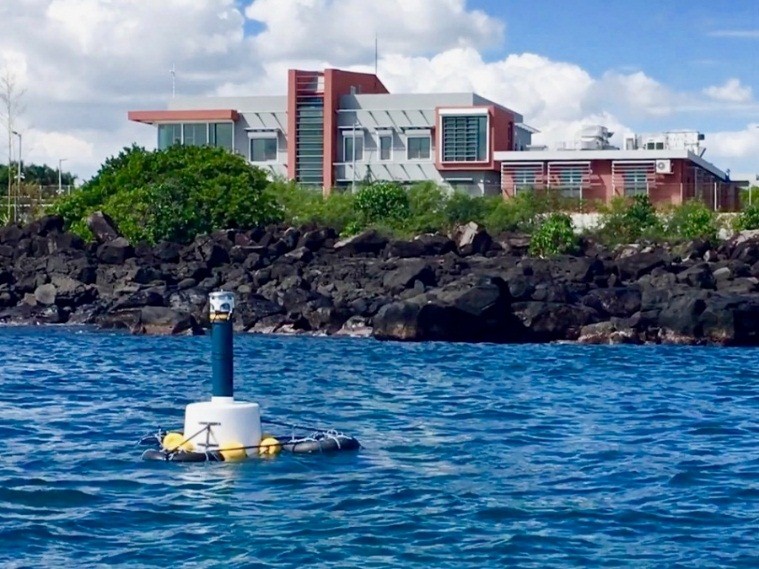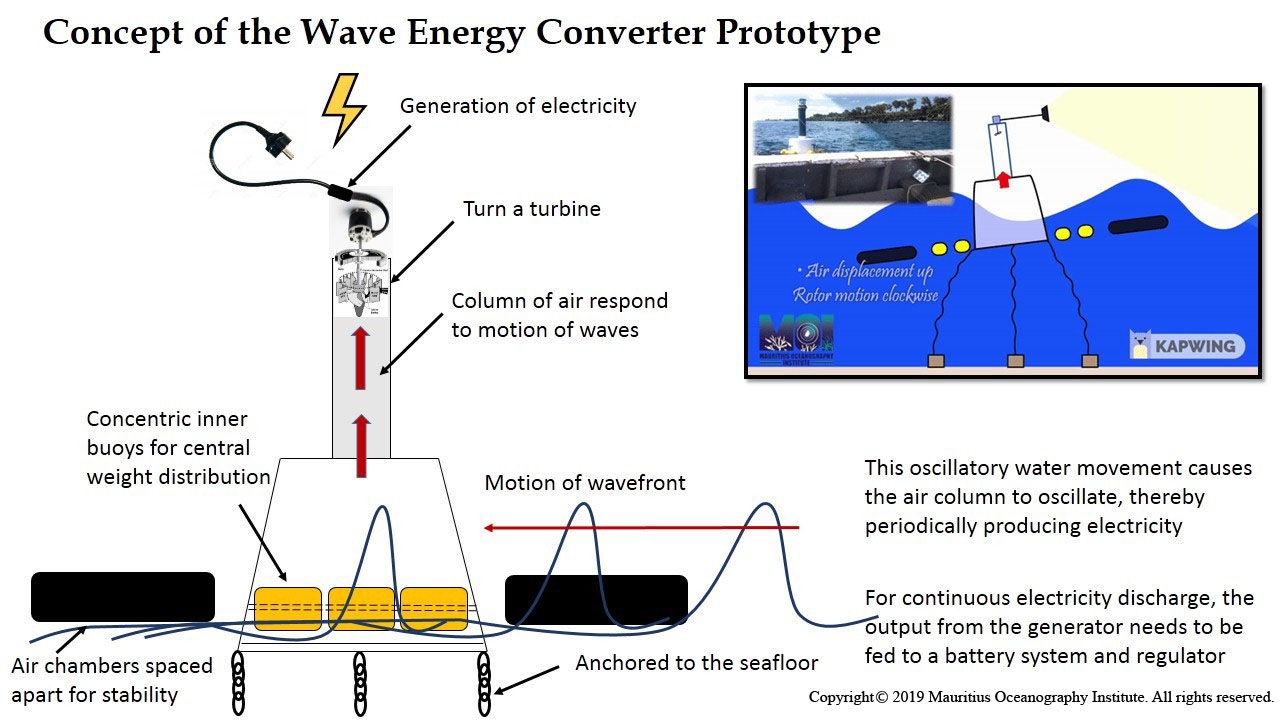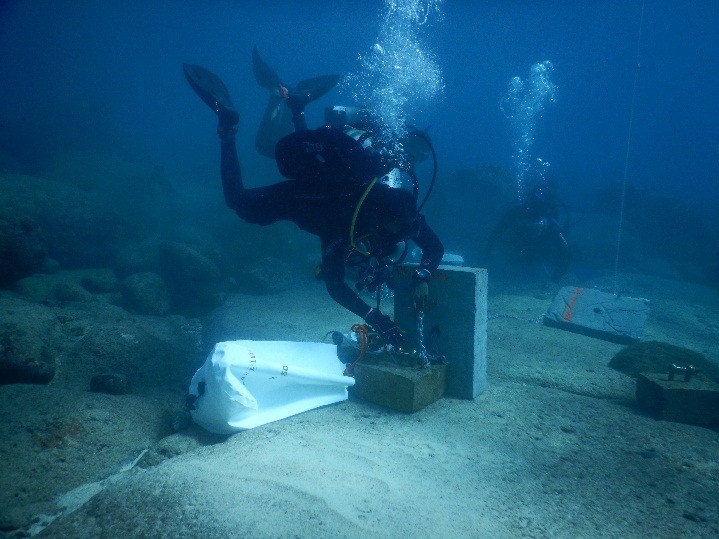Unveiling the ocean renewable energy potential of Mauritius: The contribution of MOI to the country’s energy needs?
About 21% of the electricity generation of the country comes from renewable energy sources. Ocean waves are among the most important forces shaping the world’s coastlines. The assessment of wave characteristics, such as wave height, wave direction, wavelength, wave period and wave velocity, are critical in understanding coastal processes that serve as a baseline for better coastal management. A detailed, accurate and real time knowledge of near-shore ocean wave conditions is essential.
Through the years, MOI have been collecting wave and tide information around the island of Mauritius. The recorded data provides essential information for coastal protection and engineering design as well as for planning of marine activities by giving an indication of the sea conditions.
Despite the abundant wave energy sources, there are currently no wave energy technologies. The low penetration of wave energy technologies is due to economic problems of diminishing returns on energy and monetary investment. Therefore, MOI initiated in the development of a low-cost wave energy technologies using local workforce. The MOI in collaboration with the UoM, worked on a novel WEC prototype using an OWC principle.
The novelty of the apparatus is the construction of a 3-point equilateral buoyancy system and unique anchorage design. The design of the technology has been recently patented. It has been registered (Registration No 00223/2019) in accordance with section 31 of the Patents, Industrial Designs and Trademarks Act 2002 on the 15th of November 2019, by the Industrial Property Office under the Ministry of Foreign Affairs, Regional Integration and International Trade. Replicates of the low cost WEC to form a wave farm, suitably located in the southern coasts would ensure diversification of our renewable energy sources.








